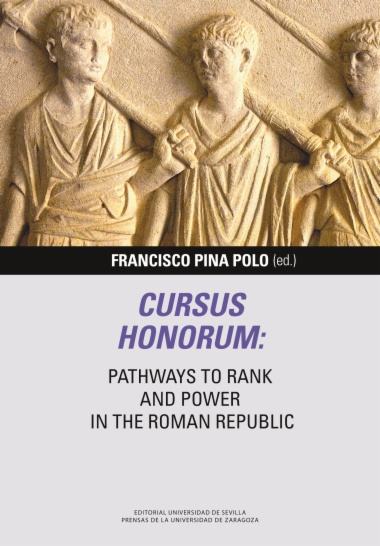This volume addresses a crucial issue for the political culture of the Roman Republic: competition among individuals and families of the social elite. This rivalry came to head at the annual elections of new magistrates: every year, a number of candidates ran for office and whereas some obtained sufficient votes from the people, others were defeated. The political career of a Roman citizen therefore took the shape of a hierarchical ladder (cursus honorum) whose rungs corresponded to the age at which one or other magistracy was attained. The book deals with the position of the cursus honorum in Republican history, reflects on the way scholarship has constructed its political and social significance for the political culture of the period, and discusses questions relating to how Roman citizens pursued different political careers. The outcome is a groundbreaking and essential contribution to a better understanding of the Roman Republic.
- Cover
- Title page
- Copyright page
- Table of contents
- Introduction
- The cursus honorum from biondo to mommsen
- The cursus honorum before the cursus honorum: debunking the lex villia annalis
- Military tribunes with consular power, auspices and the birth of the cursus honorum
- The political career of consulars in the 4th and 3rd centuries BCE
- Honores to the heroes –the tribuni militumand the cursus honorum
- The tribunate of the plebs and the cursus honorum
- What impact did the provincial management have on the roman cursus honorum?
- The cursus honorum, the senate, and the lectio senatusin the long second century BCE
- In the “thick of politics”: the role of drafting committees and consilia in the cursus honorumof young senators (2nd-1st CENTURIES BCE)
- Legati pro praetore and the rise of an alternative cursus honorum
- The cursus honorum and rivalry: some episodes about winners, losers and debts
- Refraining from running for office in the last two centuries of the roman republic: voluntary refusal, constraints and strategy
- Provinciam neglexit. The consequences of waiving the right to govern a province for the of aristocrats during the late roman republic
- Praetors and domestic politics in late roman republic: 49-43 BCE
- Being a consularis under augustus: a career within the career
- Index of persons
- Index of subjects and places

